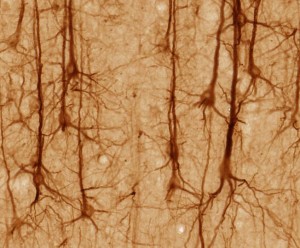Neo-Humanist Statement of Secular Principles
What guiding principles would you select if you wanted to establish a highly cooperative new society? In order to avoid re-creating the deep-seated cultural strife that is ripping us apart, you might be tempted to brush aside all current conflicting systems of religious-based morality and start fresh, striving to come up with a system to which most non-believers and many believers could assent. At center, it would be an evidence-based system. That's what Paul Kurtz has done with his newly released Neo-Humanist Statement of Secular Principles and Values. It's not for everyone, but its list of principles and values will resonate with many people. Here are the basic principles:
Neo-Humanists:
- aspire to be more inclusive by appealing to both non-religious and religious humanists and to religious believers who share common goals;
- are critical of traditional theism;
- are best defined by what they are for, not what they are against;
- wish to use critical thinking, evidence, and reason to evaluate claims to knowledge;
- apply similar considerations to ethics and values;
- are committed to a key set of values: happiness, creative actualization, reason in harmony with emotion, quality, and excellence;
- emphasize moral growth (particularly for children), empathy, and responsibility;
- advocate the right to privacy;
- support the democratic way of life, tolerance, and fairness;
- recognize the importance of personal morality, good will, and a positive attitude toward life;
- accept responsibility for the well-being of society, guaranteeing various rights, including those of women, racial, ethnic, and sexual minorities; and supporting education, health care, gainful employment, and other social benefits;
- support a green economy;
- advocate population restraint, environmental protection, and the protection of other species;
- recognize the need for Neo-Humanists to engage actively in politics;
- take progressive positions on the economy; and
- hold that humanity needs to move beyond ego-centric individualism and chauvinistic nationalism to develop transnational planetary institutions to cope with global problems—such efforts include a strengthened World Court, an eventual World Parliament, and a Planetary Environmental Monitoring Agency that would set standards for controlling global warming and ecology.
Writing in the December 2009/January 2010 issue of Free Inquiry, the magazine he founded, Kurtz declared "militant atheism is often truncated and narrow-minded...it is not concerned with the humanist values that ought to accompany the rejection of theism. The New Atheists, in my view, have made an important contribution to the contemporary cultural scene because they have opened religious claims to public examination...What I object to are the militant atheists who are narrow-minded about religious persons and will have nothing to do with agnostics, skeptics, or those who are indifferent to religion, dismissing them as cowardly."
In his interview at Huffpo, Kurtz reminds us that only 2 to 3 percent of Americans self-identify as "atheists," whereas 16 percent of Americans (50 million people) do not affiliate with any religious organization. The Statement ends with this invitation:We submit that the world needs to engage in continuing constructive dialogue emphasizing our common values. We invite other men and women representing different points of view to join with us in bringing about a better world in the new planetary civilization that is now emerging.

